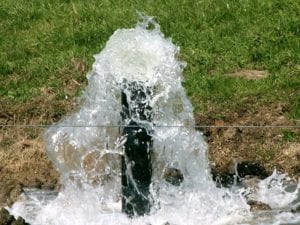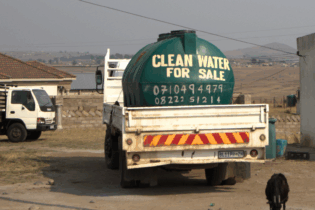South Africa is facing increased pressure on conventional water sources in urban areas. Existing mitigation measures such as increased water abstraction rates, water transfer scheme supplementation and demand side management are no longer effective in satisfying the growing water demand.
By Dr Andries Nel, Head of Water at SEM Solutions This water demand increase can be attributed to population growth, industrialisation and urbanisation. An urgent paradigm shift is required towards sustainable water management to promote urban water self-sufficiency, considering South Africa’s status as a water scarce country. The need for this shift has already been emphasized by the effects of climate change and outdated water infrastructure on an already strained water supply network. Therefore, it is evident that government and private industry have to be the catalyst for alternative solutions and strategies to increase water security and satisfy future demands. These include options such as rainwater harvesting, wastewater reclamation, bore water utilisation, water desalination and water recycling (black water, industrial effluent). However, these options are not without challenges and need to be investigated and managed properly for each application. Typical challenges include the management of water quality, operating costs, environmental impact and the public’s perception on the use of recycled water. It’s been proven that the benefits of using water sourced within cities include lower capital costs for the water supply networks, lower bore water extraction rates and produce lower waste water. Cape Town is a good example where these alternative water solutions were implemented during the water crisis to assist in satisfying the water demand. Options such as rainwater harvesting, bore water utilisation, grey water reclamation, effluent reclamation and treatment, stormwater attenuation and sea water desalination were incorporated.Although South Africa’s policy and legislation support and promote alternative water sources and efficient water management, the difficulty lies with the implementation of these solutions. However, as the city of Cape Town has shown, this hurdle can be solved if all stakeholders i.e. government and private industry work towards achieving a common goal.
Each solution should be evaluated on an ad-hoc basis for the geographic location and application, it was shown, for instance, that desalination is not an economically viable option for Cape Town at this stage. Other factors that should also form part of the feasibility include the increase in energy consumption and the long term effects of micro pollutants on humans, should wastewater be recycled for potable water purposes. These alternative solutions and strategies provide diversification to urban environments, subsequently increasing water security, reliability and supply stability. As technology improves and the capital and operational costs reduce, the feasibility and implementation of these solutions will increase. Having been involved with the design and implementation of numerous water solutions for buildings, including grey water reclamation for ABSA Auckland Park, ABSA Towers North and bore water utilisation for the University of Pretoria, we can safely say that water management is not just an engineering challenge, but a multi-faceted challenge that requires a holistic approach from all stakeholders to provide the best solution. It is our hope that the implementation of these solutions become more common with the reduction of capital costs. According to Martine, half of the world’s population lives in urban areas. It is for this reason that alternative water sources and strategies should be considered to improve urban water self-sufficiency.






